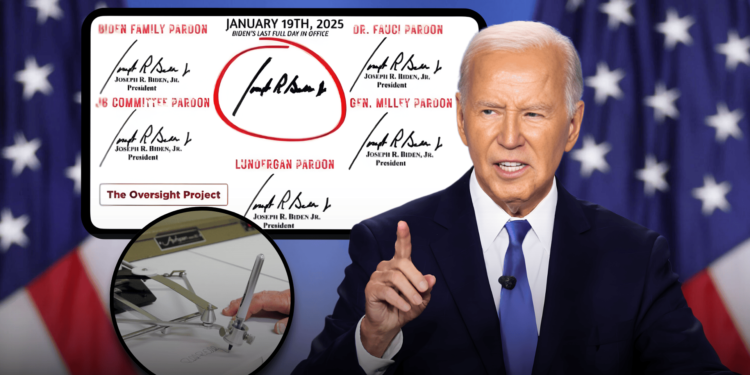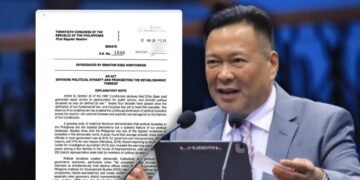The United States House Oversight Committee has asked the Department of Justice to review and possibly void several presidential pardons and executive orders issued during Joe Biden’s presidency, citing evidence that some were signed using an autopen machine without verified personal authorization. The committee’s report, released on October 28, identifies clemency grants for Biden’s relatives, political allies, Anthony Fauci, military officials, and individuals connected to the January 6 Capitol attack, along with executive orders on pandemic policy, student loan relief, labor regulations, and border enforcement, as potentially affected.
The report, titled “The Biden Autopen Presidency: Decline, Delusion, and Deception in the White House,” claims that several key documents lack traceable proof showing Biden personally approved them. It says White House aides relied on the autopen and bypassed the standard decision-memo tracking system during what it describes as a period of presidential decline. The committee asks the Department of Justice to audit all official actions from Biden’s term and verify the chain of authorization for each one, including digital confirmations, internal emails, and staff attestations of approval.
Among those pardoned in Biden’s final months were Hunter Biden, convicted of federal tax and firearms offenses; Anthony Fauci, under congressional investigation for pandemic-era research funding and procurement decisions; retired Gen. Mark Milley, questioned over unauthorized foreign communications during the Trump transition; and January 6 committee staff cited for contempt of Congress for withholding subpoenaed records. The list also includes Democratic fundraiser Frank Biden, investigated by the Securities and Exchange Commission for lobbying and contracting activities. If the Department of Justice determines that any of these pardons were issued without valid authorization, the recipients could face reinstated charges or renewed prosecution. Legal experts note that when a presidential pardon is declared invalid, the underlying criminal or civil liabilities automatically return.
The report also calls for review of executive orders issued in late 2024 and January 2025 involving vaccine mandates, emergency-powers extensions, and energy-sector restrictions. Lawmakers argue these were enacted during a period of limited presidential engagement and should be validated only if documentation confirms Biden’s direct approval.
Under current legal interpretation, a presidential act remains valid once the president authorizes it, regardless of how the signature is applied. The Justice Department’s Office of Legal Counsel affirmed in 2005 that a president may direct an aide or a device to affix his signature as long as he personally approved the action. No U.S. court has ever voided a pardon or executive order because of autopen use. The legal question is whether Biden explicitly authorized each action that bears his name.
Questions about Biden’s health have fueled the autopen controversy. His sharp decline became public after his halting 2024 debate performance against Donald Trump, where his voice weakened and he lost his train of thought several times. That moment raised doubts inside his own party about his capacity to lead. Reports from that period described limited public appearances and increasing dependence on aides for official duties. As the campaign progressed, Biden was gradually removed from the spotlight while Vice President Kamala Harris took over the ticket. Critics now say that pattern of reduced visibility strengthens the case for verifying whether Biden personally authorized the pardons and executive orders under review.












